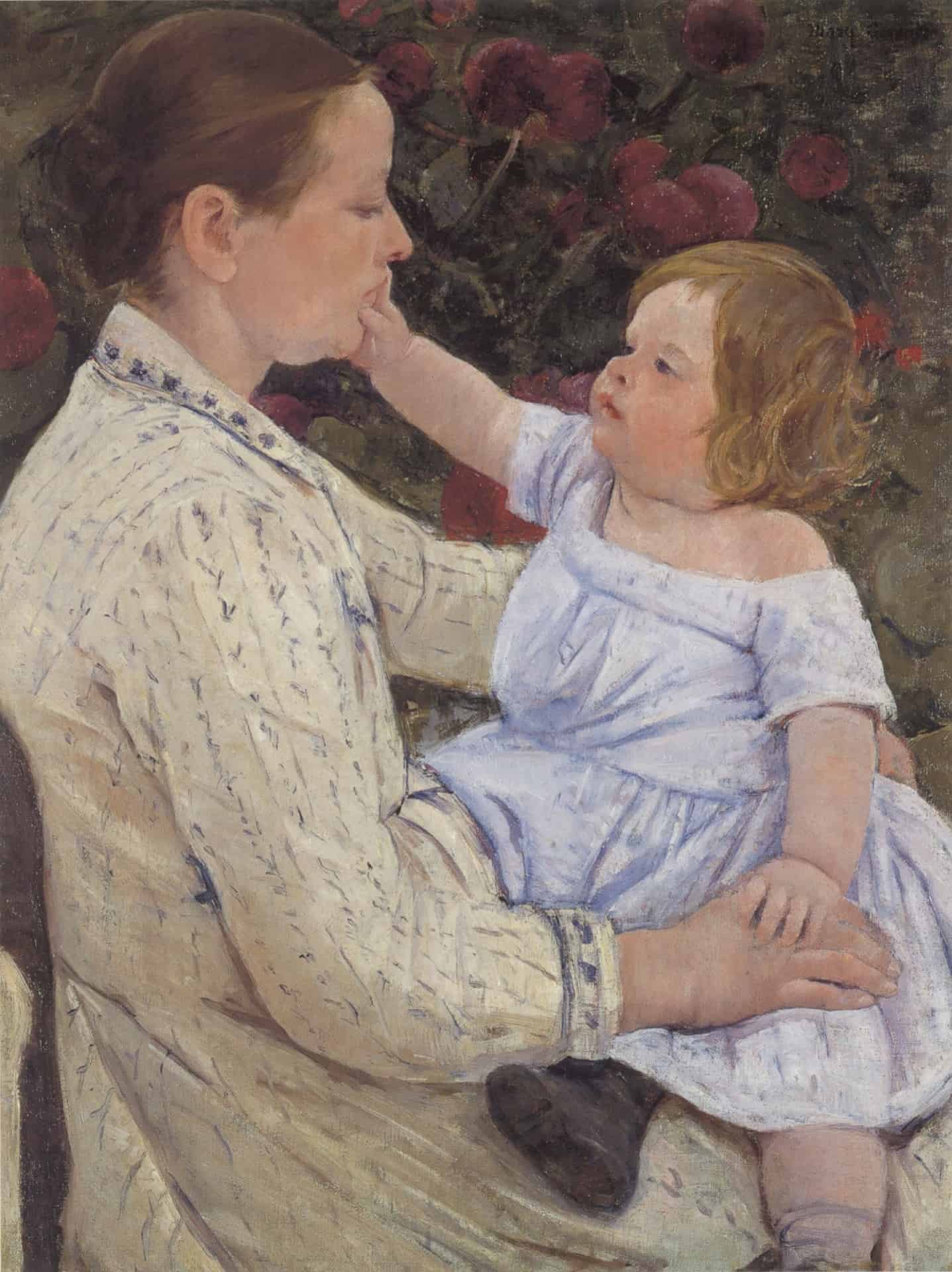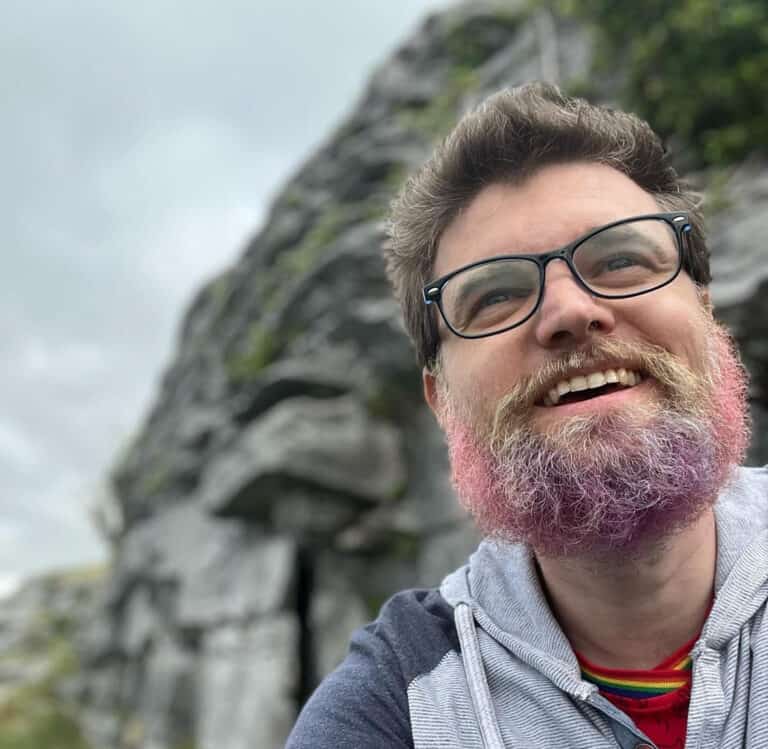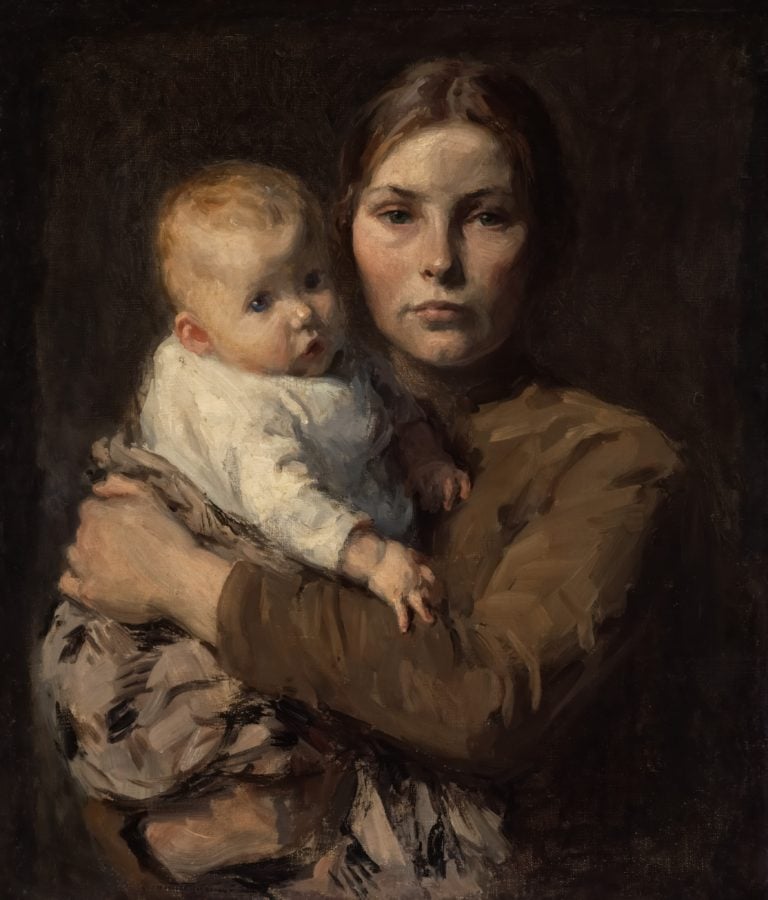POCD: What is it?
Medically Reviewed By – Juliet Gustafson, LMSW

POCD is an OCD subtype revolving around the fear of being a pedophile. Similar to other subtypes, POCD has its own set of obsessions and compulsions (both mental and physical).
Due to its sensitive nature, POCD is rarely discussed in full detail by sufferers which in result has made the subtype greatly misunderstood and misdiagnosed.
“Out of pure terror, I kept it all to myself for two months, before I couldn’t take it anymore and had a breakdown.”
What is OCD?
Obsessive-compulsive disorder is a mental health condition that affects millions of individuals worldwide. Obsessions and compulsions are the two main components of OCD.
Obsessions are unpleasant ideas, desires, and/or mental pictures that reoccur often throughout time. These obsessions consume a lot of time, are difficult to stop, and generate a lot of anxiety and stress.
Compulsions, on the other hand, are repetitive physical and/or mental behaviors repeated over time to relieve distress induced by obsessions.
What is POCD?
Pedophilic OCD, also known as pedophile-themed obsessive-compulsive disorder or POCD, is a subtype of obsessive-compulsive disorder (OCD) characterized by intrusive and distressing thoughts or obsessions related to pedophilia.
People with pedophilic OCD experience unwanted and intrusive thoughts, images, or impulses of a sexual nature involving children, despite having no actual desire to engage in such behavior.
It is important to note that individuals with POCD are not pedophiles, as they do not have a genuine attraction to children and typically find these thoughts disturbing and distressing.
It is crucial to understand that having pedophilia OCD does not imply that a person poses any risk to children. Individuals with this condition are typically horrified by their intrusive thoughts and make great efforts to prevent any harm.
However, due to the distress caused by these thoughts, they may avoid situations involving children or seek treatment to manage their symptoms.
If you or someone you know is experiencing distressing and unwanted thoughts related to pedophilia (pedophilic disorder) or any other form of OCD, it is important to seek help from a mental health professional who can provide an accurate diagnosis and appropriate treatment.
Related Article(s) – Health Obsessive Compulsive Disorder (Health OCD)
What Are The Symptoms of POCD?
Pedophilia OCD (POCD) typically manifests with a variety of ocd symptoms that are characteristic of obsessive-compulsive disorder (OCD).
POCD symptoms may include the following:
Intrusive thoughts
People with POCD experience persistent and intrusive thoughts, images, or impulses related to sexual or inappropriate thoughts involving children. These thoughts are distressing, unwanted, and go against the individual’s true values and beliefs.
Compulsive behavior or mental rituals
To alleviate the anxiety and distress caused by the intrusive thoughts, individuals with POCD may engage in compulsive behaviors or mental rituals.
Avoidance
Individuals with POCD (pedophilia obsessive compulsive disorder)often go to great lengths to avoid situations or triggers that may trigger their intrusive thoughts or increase their anxiety.
This can lead to social withdrawal, isolation, and a significant impact on their daily functioning.
Emotional distress
POCD can cause significant emotional distress, including feelings of guilt, shame, and self-doubt.
Individuals may feel intense anxiety or depression due to their intrusive thoughts and the fear of potentially hurting a child, despite having no actual desire to do so.
Hyperawareness and self-monitoring
People with POCD may become hyperaware of their thoughts, feelings, and reactions, constantly monitoring themselves for any signs of inappropriate sexual abuse or harmful behavior towards children.
This heightened self-awareness can further exacerbate their anxiety and distress.
Pedophilic Obsessions
In pedophilic OCD (POCD), individuals experience intrusive and distressing obsessions related to the fear or belief that they are or could become a pedophile.
These obsessions often involve unwanted thoughts, images, or impulses that are sexual in nature and involve children.
Here are some common obsessions that individuals with POCD may experience:
Unwanted sexual thoughts about children
This can involve intrusive and explicit sexual thoughts, images, or fantasies involving children, even though the person finds these thoughts repugnant and distressing.
Fear of being attracted to children
Individuals with POCD may constantly question their own attraction towards children, despite having no genuine desire or interest in engaging in inappropriate behavior.
Constant self-monitoring
People with POCD may be hyper-vigilant about their thoughts, feelings, and reactions, constantly monitoring themselves for any signs of attraction or inappropriate behavior towards children.
Fear of acting on the thoughts
Individuals with POCD may fear that they will lose control and act on their intrusive thoughts, even though they have no intention or desire to do so.
Doubt and uncertainty
Individuals with POCD often experience extreme doubt and uncertainty about their true desires and intentions. They may constantly question their own morality and worry that their thoughts indicate a hidden desire or potential risk to children.
Seeking reassurance
People with POCD may seek reassurance from others, such as friends, family members, or mental health professionals, to confirm that they are not a threat to children.
However, this reassurance-seeking behavior often provides only temporary relief and reinforces the obsessive thought patterns.
Remember, having these obsessions does not make a person a pedophile, as individuals with POCD typically find these thoughts repugnant and disturbing.
Related Article(s) – What is Harm OCD? Understanding Signs & Symptoms
“I spent years avoiding any intimacy with myself in fear the POCD intrusive thoughts or images would occur during this time.”

Pedophilic Compulsions
In pedophilia OCD (POCD), individuals often engage in compulsive behaviors or mental compulsions as a way to alleviate anxiety and neutralize their sexually inappropriate thoughts.
These ocd compulsions are aimed at reducing the perceived risk of being a pedophile or acting on their purely obsessional ocd.
Here are some typical course compulsions that POCD sufferer(s) may engage in:
Reassurance-seeking
People with POCD may seek reassurance from others, such as friends, family members, or mental health professionals, to confirm that they are not a threat to children.
They may perform compulsions for repeated reassurances that they are not a pedophile or seek validation that their disturbing thoughts are not indicative of their true desires.
Avoidance
Individuals with POCD may avoid situations, people, or places that they perceive as potential triggers for their obsessional fear(s).
This can include avoiding social gatherings involving children, avoiding certain locations like parks or schools, or even avoiding media content that involves children.
Mental rituals
POCD can involve engaging in mental rituals or thought processes to counteract the feared stimuli and reduce POCD obsessions.
Checking and monitoring
People with POCD may engage in compulsive checking behaviors to ensure that they are not acting inappropriately or posing a risk to children.
This can involve repeatedly checking their own thoughts, sexual urges, feelings, or behaviors, or seeking external validation through excessive online research or reading news stories about child abuse.
What is Groinal Response?
In obsessive-compulsive disorder (OCD), groinal response refers to the experience of experiencing unwanted or intrusive sexual thoughts, images, or urges that result in physical sensations or arousal in the genital area.
It is important to note that these responses can be distressing and confusing for individuals with OCD, as they may feel shame, guilt, or anxiety about these sexual thoughts or sensations.
Groinal response is considered to be a type of “thought-action fusion,” which is a cognitive distortion often seen in OCD.
Related Article(s) – OCD Ordering And Arranging
Thought-action fusion is the belief that having a particular thought is equivalent to performing the action associated with that thought.
In the case of groinal response, individuals with OCD may interpret the physiological sensations in the genital area as evidence that they desire or are aroused by the intrusive sexual thoughts, even if this is not the case.
It’s crucial to understand that experiencing groinal response does not reflect a person’s true desires, intentions, or sexual orientation.
It is simply a physiological reaction that can occur as a result of the brain’s response to intrusive thoughts. The presence of groinal response does not confirm any underlying sexual attraction or preference.
“I remember when I experienced groinal response, it was torture. There is no other words to describe how it made me feel except it broke me.”
Is it POCD or Real?
Pedophilia OCD (POCD) and real pedophilia are distinct and separate conditions. Here are the key differences between the two:

Nature of the thoughts and desires
- POCD: In POCD, individuals experience unwanted and distressing thoughts, images, or impulses related to sexual or inappropriate thoughts involving children. These thoughts are ego-dystonic, meaning they are inconsistent with the person’s true desires, values, and beliefs. People with POCD typically find these thoughts repugnant and distressing and do not have any genuine sexual thought(s) to children.
- Pedophilia: Pedophilia, on the other hand, is a psychiatric disorder characterized by a primary or exclusive sexual attraction to prepubescent children. It involves persistent sexual fantasies, urges, or behaviors involving children. Pedophiles have a genuine and ongoing sexually aroused interest in children, and their attraction is a central aspect of their sexual orientation.
Emotional response
- POCD: POCD sufferers typically experience significant distress, guilt, shame, and anxiety about their obsessive thoughts. They are horrified by their thoughts and make efforts to prevent any harm or avoid situations involving children.
- Pedophilia: Pedophiles may experience a range of emotions related to their sexual attraction to children, but these feelings are not typically characterized by distress, guilt, or shame about their desires. Pedophiles may experience a lack of empathy or concern for the well-being of children, which can contribute to harmful behaviors.
Intent and behavior
- POCD: Individuals with POCD have no actual desire or intention to act on their intrusive thoughts. They may engage in compulsive behaviors and rituals to alleviate their anxiety and neutralize the intrusive thoughts. These behaviors are aimed at avoiding harm and seeking reassurance rather than pursuing any actual sexual interaction with children.
- Pedophilia: Pedophiles have a genuine sexual attraction to children and may act on their desires, which can involve engaging in sexual activities with minors. It is important to note that acting on pedophilic urges is illegal and highly unethical, as it involves exploiting and causing harm to children.
“I remember I started getting intrusive thoughts first of all, they were the most vilest, evilest things I had ever heard.”
How Do You Treat POCD?

Pedophilia OCD (POCD) is typically treated using a combination of ocd treatment and, in some cases, medication.
The primary POCD treatment approaches for include:
Cognitive-Behavioral Therapy (CBT)
CBT is the most commonly used therapy in order to treat ocd. It aims to help individuals identify and challenge their sexual thoughts, modify their dysfunctional beliefs and assumptions, and develop healthier coping mechanisms.
One specific technique used in CBT for OCD is Exposure and Response Prevention (ERP therapy).
Exposure and Response Therapy
ERP (exposure therapy) involves gradually exposing individuals to their feared thoughts, images, or situations related to pedophilia while refraining from engaging in the associated compulsive behaviors or rituals.
Over time, ERP treatment helps reduce common POCD compulsions and distress associated with the obsessions.
Mindfulness-Based Therapies
Mindfulness-based therapies, such as Acceptance and Commitment Therapy (ACT), can be beneficial for individuals with POCD.
These effective treatment(s) help individuals develop mindfulness skills to observe and accept their POCD diagnosis without judgment, thereby reducing their emotional distress and reactivity.
Medication
In some cases, medication may be prescribed to help manage the symptoms of POCD. Selective serotonin reuptake inhibitors (SSRIs), a type of antidepressant, are commonly prescribed for OCD and can be effective in reducing the frequency and intensity of intrusive thoughts and compulsions.
Medication should be discussed with a qualified ocd specialist, who can evaluate the individual’s specific needs and prescribe the appropriate medication if necessary.
Related Article(s) – Is OCD Treatable Without Medication?
It’s important to seek help from many mental health professionals experienced in treating OCD, as they can provide an accurate diagnosis and develop an individualized treatment plan such as talk therapy.
Treatment for POCD can be challenging, but with proper support of a clinical psychologist and sometimes medication, individuals can effectively manage their symptoms and improve their overall quality of life.
Does POCD Ever Go Away?
With appropriate treatment and support, individuals with pedophilic OCD (POCD) can experience significant improvement in their symptoms and quality of life.
While it is possible for the symptoms of POCD to diminish or even go into remission, it is important to note that OCD is a chronic condition that may require ongoing management.
Related Article(s) – What Will Happen if OCD is Left Untreated?
The goal of seeking treatment for POCD is not to eliminate the intrusive thoughts completely, but rather to help individuals develop coping mechanisms, reduce anxiety, and improve their ability to manage and respond to the obsessions in a healthier way.
Cognitive-behavioral therapy (CBT) techniques, such as Exposure and Response Prevention (ERP therapy), can be effective in helping individuals gain control over their thoughts and reduce the distress associated with them.
It is worth noting that managing POCD symptoms may involve learning to live with some level of uncertainty and discomfort.
Even with treatment, occasional intrusive thoughts may still arise, but individuals can learn to recognize them as symptoms of their condition rather than reflections of their true desires or intentions.
Overall, with proper treatment, support, and effective coping strategies, individuals with POCD can experience significant improvement and lead fulfilling lives.
Regular follow-up with a mental health professional can help monitor progress, make any necessary adjustments to treatment, and provide ongoing support.
Related Article(s) – Does OCD Go Away With Age? (It Doesn’t)
Final Thoughts on Living with POCD
“Each subtype I experienced was an immense challenge, each one broke me more and more. I wanted to give up so many times, I was exhausted.”
POCD is not a reflection of an individual’s true desires or intentions but rather a manifestation of their anxiety and fear.
The journey toward recovery begins with seeking professional help from mental health practitioners who specialize in OCD. Through therapy, individuals can gain the tools to navigate the labyrinth of their thoughts and emotions.
In conclusion, POCD may be a challenging journey, but it is not one that needs to be faced alone. With proper treatment, understanding, and support, individuals with POCD can find hope, resilience, and the strength to reclaim their lives.
Let us foster a world that embraces compassion, providing a pathway to healing and growth for those affected by this complex condition.
“I would like to take this opportunity to thank my Father, a man who unknowingly saved me multiple times, I owe him my life. I hope that one day I am half the parent that he is. My best friend, my rock, thank you.”





